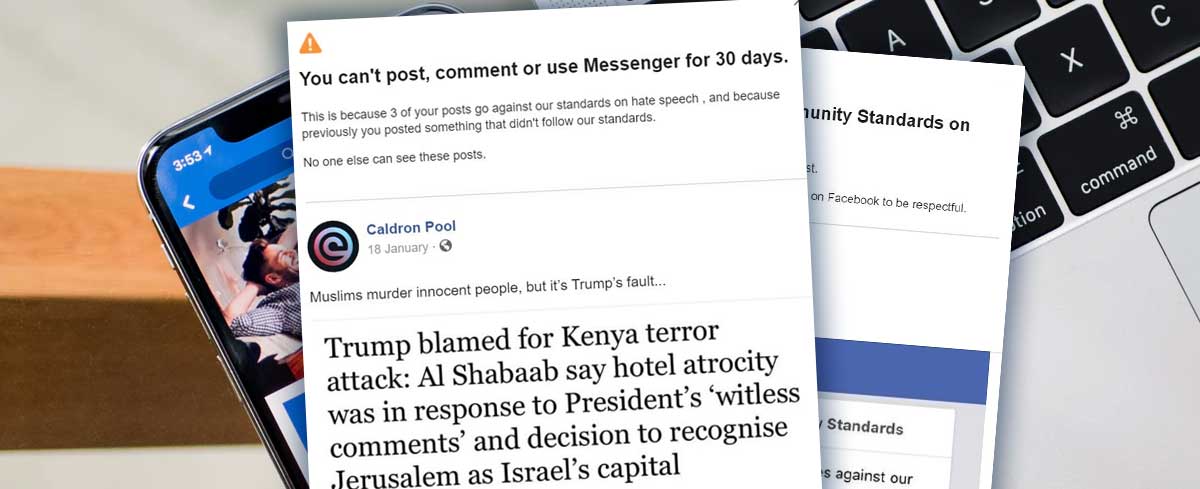One of the obvious issues with ‘hate speech’ rules is just how arbitrarily they can be applied by those in power. Take Facebook, for instance: This week we were banned not only for referring to Islamic terrorists as “Muslims”, but also for an article we shared which was critical of Facebook for using ‘hate speech’ violations as a means of censoring unapproved ideas.
According to Facebook, breaching their standards and policy “could lead to limitations such as a Page being unpublished, reduced distribution and more.”
It’s becoming a real issue, as anyone following Senator Ted Cruz and the Senate Judiciary Committee hearing over big tech’s bias and censorship of conservatives would understand.
Perhaps what’s more concerning is the fact that it’s not just social media platforms that are adopting this arbitrary notion of ‘hate speech.’ Politicians and Governments are constantly talking about their efforts to crack down on hateful rhetoric.
But if we can learn anything from big tech’s treatment of political opponents, it’s that we should never hand the government the same power to arbitrarily silence and punish “unapproved” speech.
‘Hate speech’ is a fiction. It’s a concept invented to create the illusion of virtue in shutting down political critics. Branding criticism or critiques of particular ideologies or certain policies as ‘hate speech’ provides a way of silencing political opposition while claiming the moral high ground in doing so.
One only needs to label an unapproved opinion ‘hate speech’, to justify suppression and censorship. This is ‘might makes right’ politics, and the day we hand that power over to our governments is the day we kiss political debate goodbye.





















